Our Members Asked:
Which vitamins and supplements are good for acne, and are there any that make it worse?
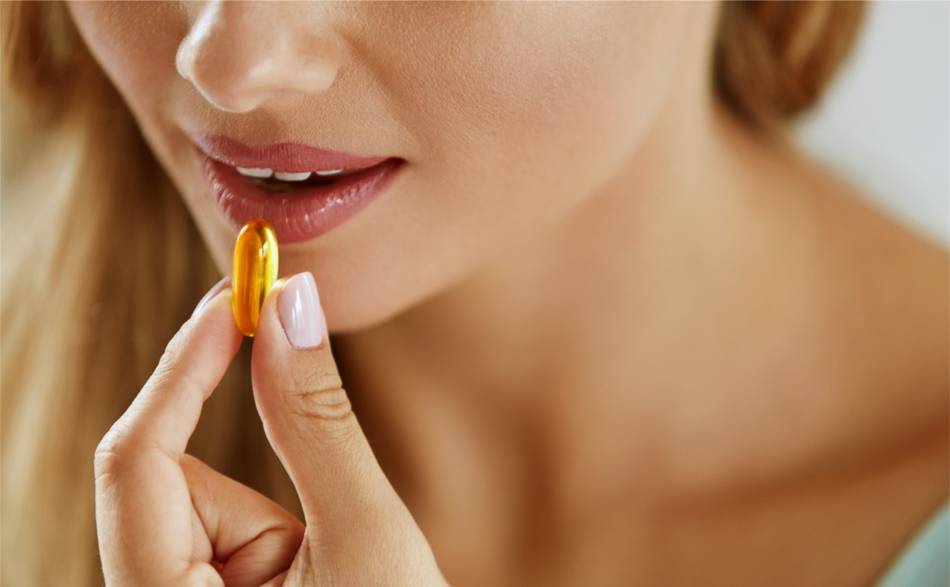
Answer:
Acne means there is inflammation around blocked pores of the skin. This may explain why supplements with an anti-inflammatory effect may lead to clearer skin, while those that stimulate inflammation may make things worse.
Supplements that may reduce acne
According to a small, preliminary study, high-dose fish oil, which has natural anti-inflammatory effects, reduced pimples by about 40%. (Borage oil was also tried and reduced pimples by about one-third, although borage oil is not anti-inflammatory).
The mineral zinc may also reduce acne, but the benefits appear to be slight and the required dose is so high as to be potentially toxic. Experts state that there is not enough evidence to recommend zinc for acne treatment.
Taking vitamin B-5 (pantothenic acid) may help reduce the number of facial lesions in young adults with acne, but more research is needed to confirm. As with zinc, experts state that there is not enough evidence to recommend pantothenic acid for treating acne.
Vitamin D supplementation may reduce lesions among people with acne who are vitamin D deficient. However, there does not appear to be any evidence that vitamin D supplementation is beneficial among people with acne who have adequate levels of vitamin D.
Lactoferrin is a naturally occurring protein in milk that has antimicrobial and anti-inflammatory effects. Although preliminary studies suggest lactoferrin supplementation may reduce the number of acne lesions in people with mild to moderate acne, higher quality studies are needed to prove a benefit. While bovine colostrum contains lactoferrin, it is unclear if bovine colostrum is beneficial for acne, as no clinical studies have evaluated bovine colostrum for this use.
Probiotics may improve acne by reducing inflammation and balancing the relationship between the gut microbiome and skin health (i.e., the gut-skin axis). However, most studies to date have been relatively short-term, and it is not clear which, if any, probiotic is best. Also, probiotics may have only slight benefit when used along with topical acne medication.
Diindolylmethane (DIM), a derivative of a compound found in broccoli and other cabbage-family vegetables, was shown in a laboratory study to prevent certain acne-causing bacteria from forming biofilms that may aggravate acne (Kim, Microbiol Spectr 2022). However, there do not appear to be any clinical studies evaluating DIM supplementation for acne treatment or prevention.
A 12-week, manufacturer-conducted study among 92 women (average age 31) with mild-to-moderate acne showed that taking four capsules of Nutrafol SKIN by Nutraceutical Wellness Inc once daily was only slightly better than placebo in reducing acne severity compared to placebo (-0.74 vs -0.36 points on a scale of 0 to 5) based on investigator assessment. More people in the Nutrafol SKIN group achieved clear/almost clear skin compared to placebo (44% vs 13%), but there was no between-group difference in the number of acne lesions. One person receiving Nutrafol SKIN experienced nausea. Nutrafol SKIN contains holy basil, berberine, maca root extract, selenium, B. subtilis DE111, L. plantarum L-137, Sicilian orange extract, lycopene, olive extract, ginger extract, curcumin, and "other key ingredients" (Draelos, J Cosmet Dermatol 2025) which, based on the Supplement Facts panel, include tributyrin, konjac root extract, vitamin A, vitamin C, vitamin D, niacin, folate, pantothenic acid, zinc, and sodium.
Supplements that do not seem to reduce acne
Supplementation with very high-dose vitamin A (3 to 50 times the Tolerable Upper Intake Level for adults) does not appear to significantly improve acne skin compared to placebo.
Taking decaffeinated green tea extract does not appear to significantly reduce acne lesions among young women with moderate to severe acne.
Taking fenugreek seed extract was inferior to taking the antibiotic azithromycin for reducing acne severity.
Supplements that may worsen acne
Large doses (much larger than the daily requirement) of vitamin B-12 from supplements can cause outbreaks of acne, even in older people, as the oversupply of vitamin B-12 may stimulate production of an inflammatory protein by bacteria in the skin.
Although uncommon, certain individuals who are sensitive to iodine can develop acne breakouts, rashes, or other skin reactions when consuming iodine from iodized table salt or supplements such as certain multivitamins and kelp supplements. For more about this, see the Concerns and Cautions section of the Kelp Supplements Review. (Keep in mind that iodine is an essential mineral and is especially important during pregnancy, so don't avoid iodine.)
A modest association between consumption of cocoa and the development of pimples has also been shown.
Supplementation with whey protein has been linked with the development of acne lesions on the back and chest among teens and young adults. It is thought that whey protein, like other milk derivatives, may increase levels of a hormone that leads to increased sebum production and clogging of pores.
Topicals for acne
Several vitamins or plant-derived ingredients, including tea tree oil, witch hazel, green tea, zinc, and vitamin B-12, have been evaluated as topical agents for treating acne, but the American Academy of Dermatology stated in its 2024 guidelines that there is not enough evidence to develop recommendations on the use of any of these compounds for acne treatment (Reynolds, J Am Acad Dermatol 2024).
Join today to unlock all member benefits including full access to all CL Answers and over 1,400 reviews.
Join NowAlready a member? Sign In Here.
Join now at www.consumerlab.com/join/

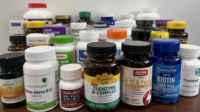


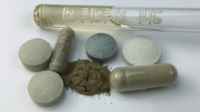
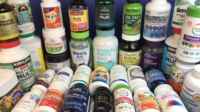
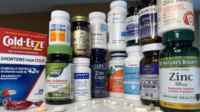





Submit your comment
This feature is restricted to active members.
Join now to add comments and get all member benefits, including over 1,400 reviews.
Join NowAlready a member? Sign in here.